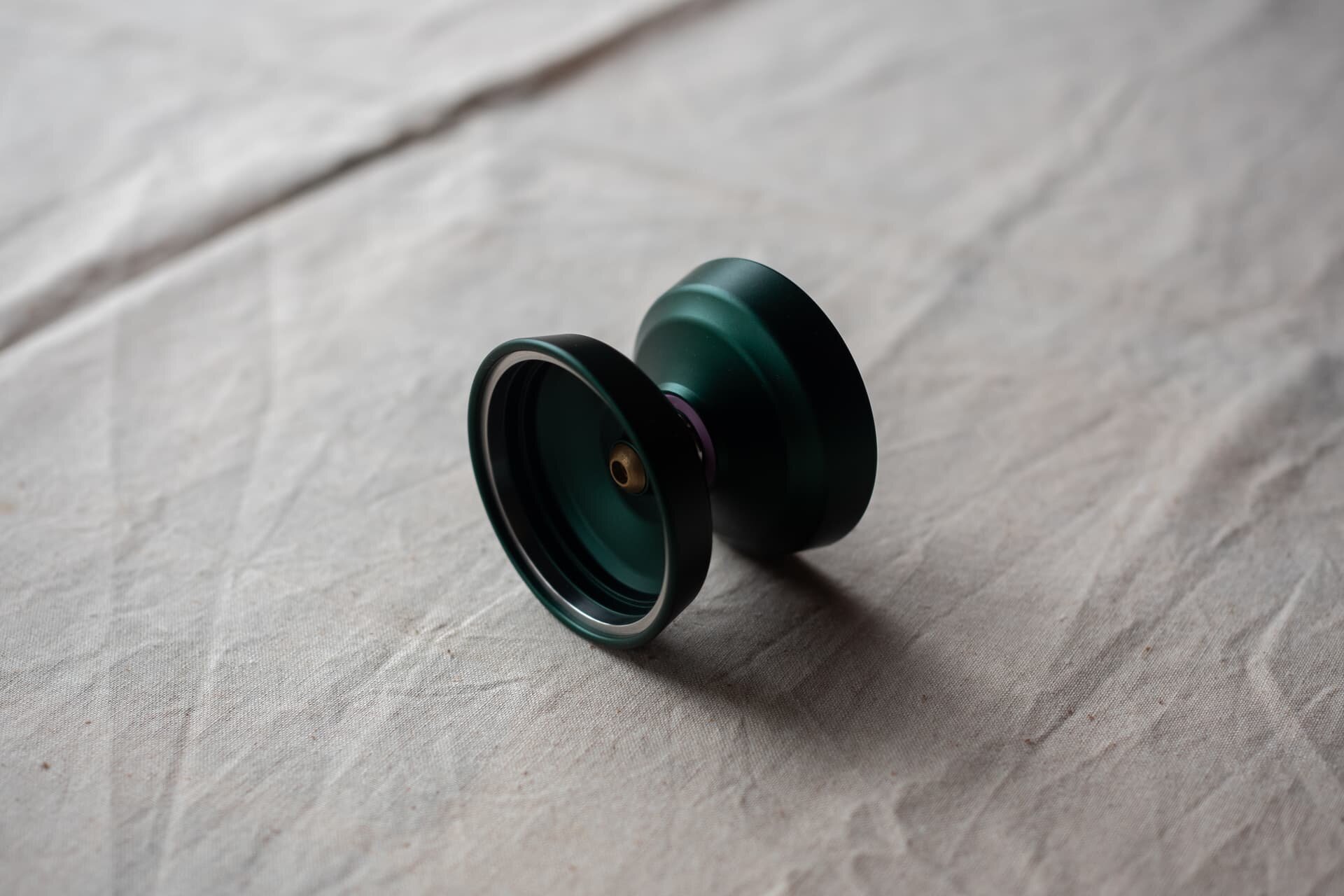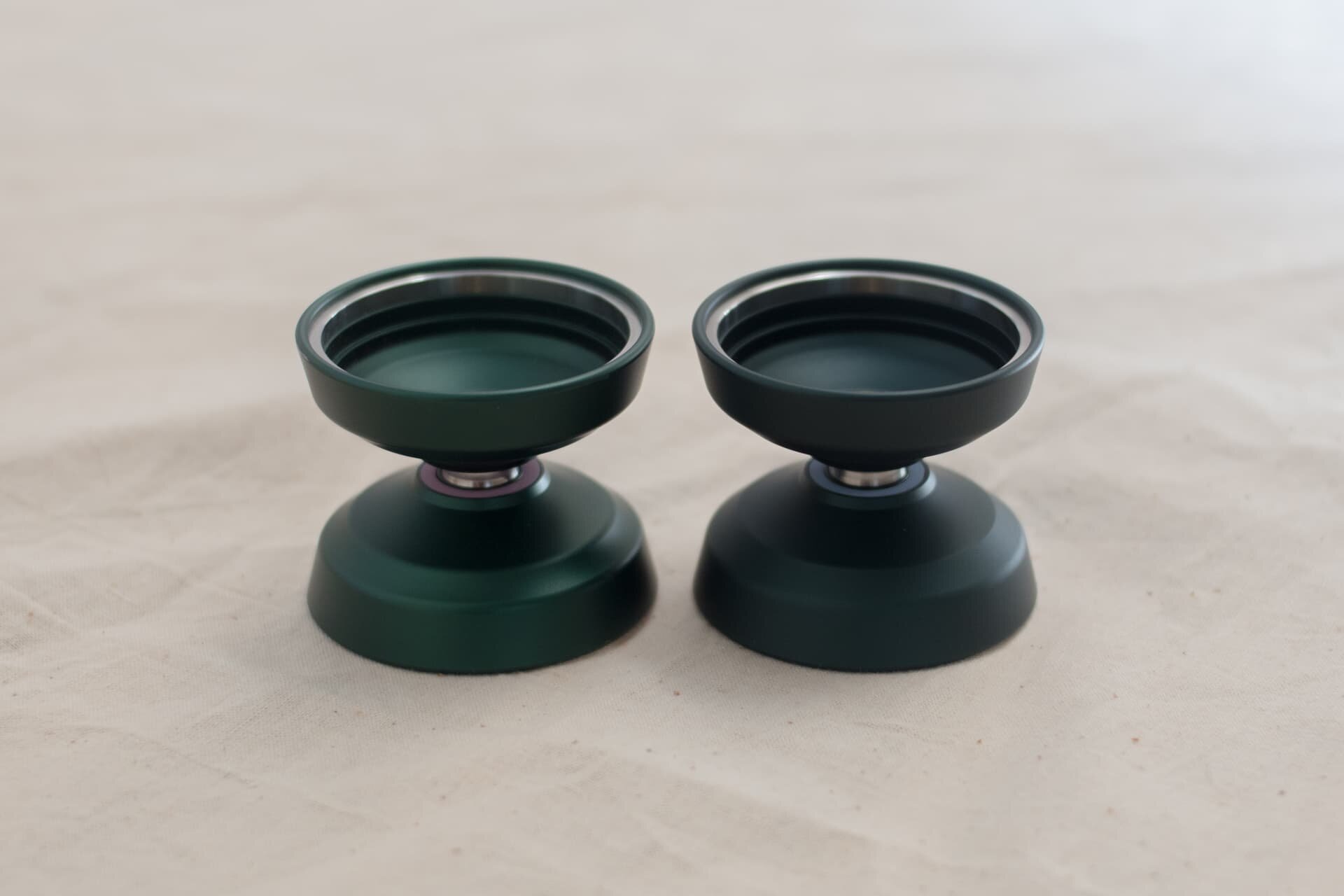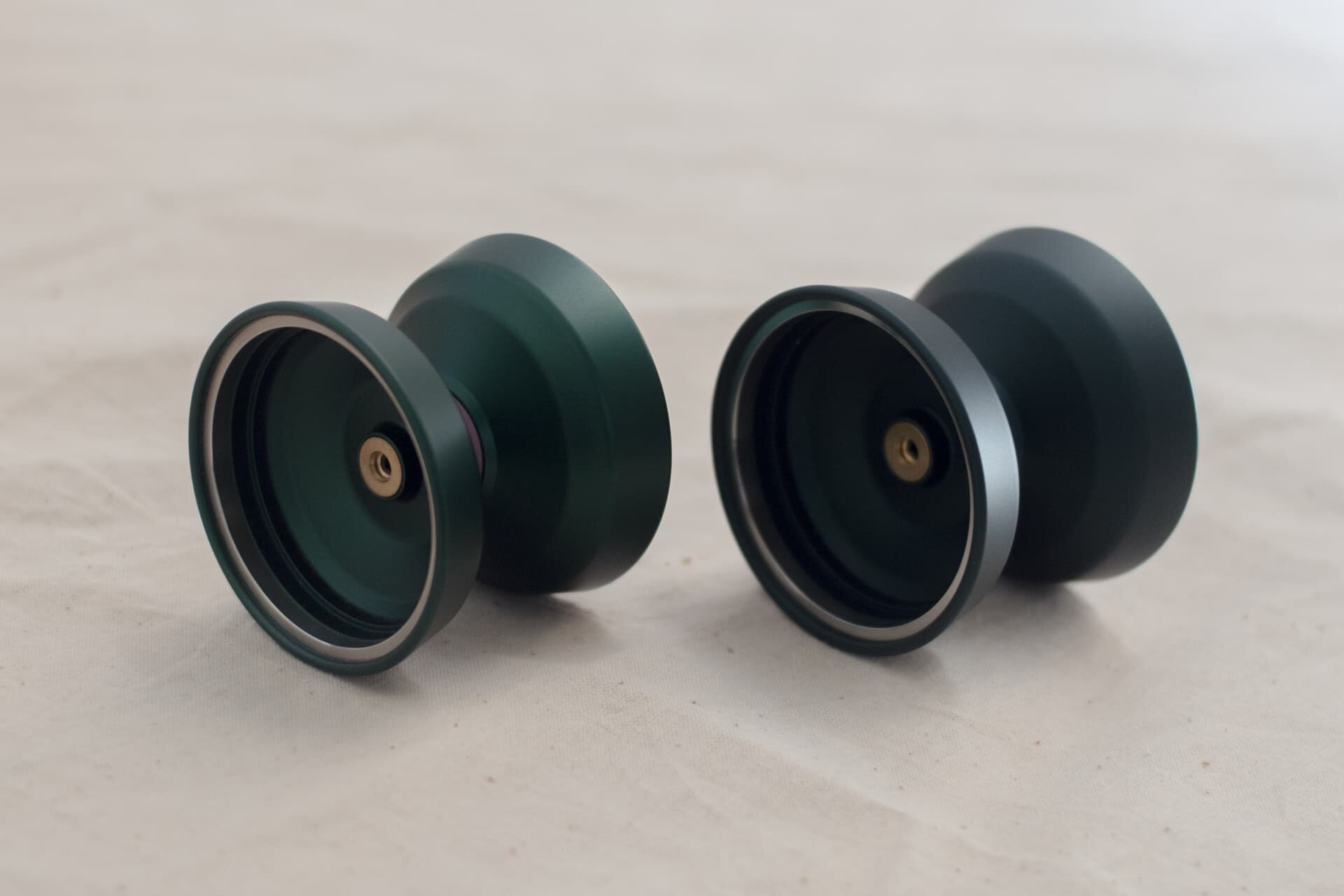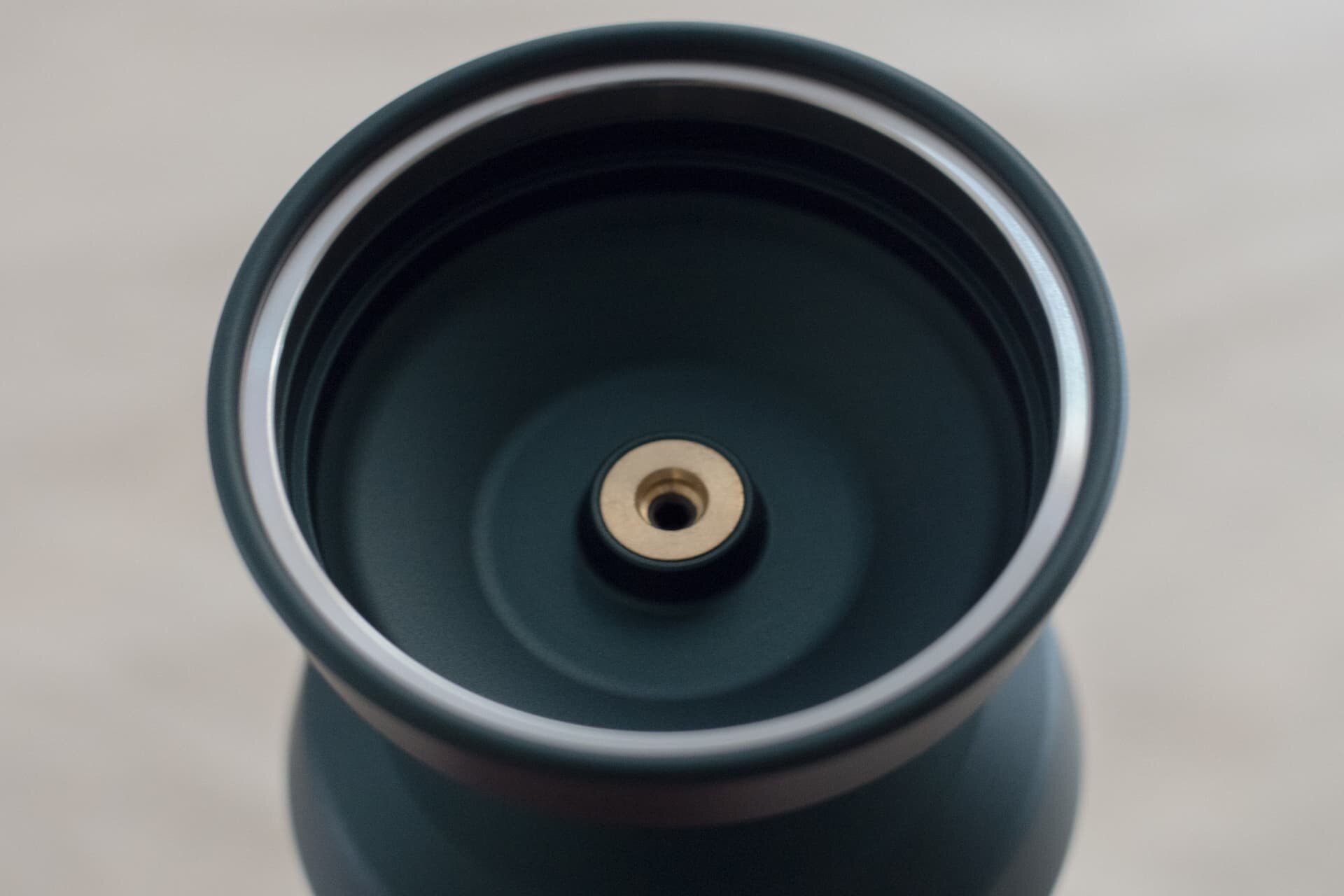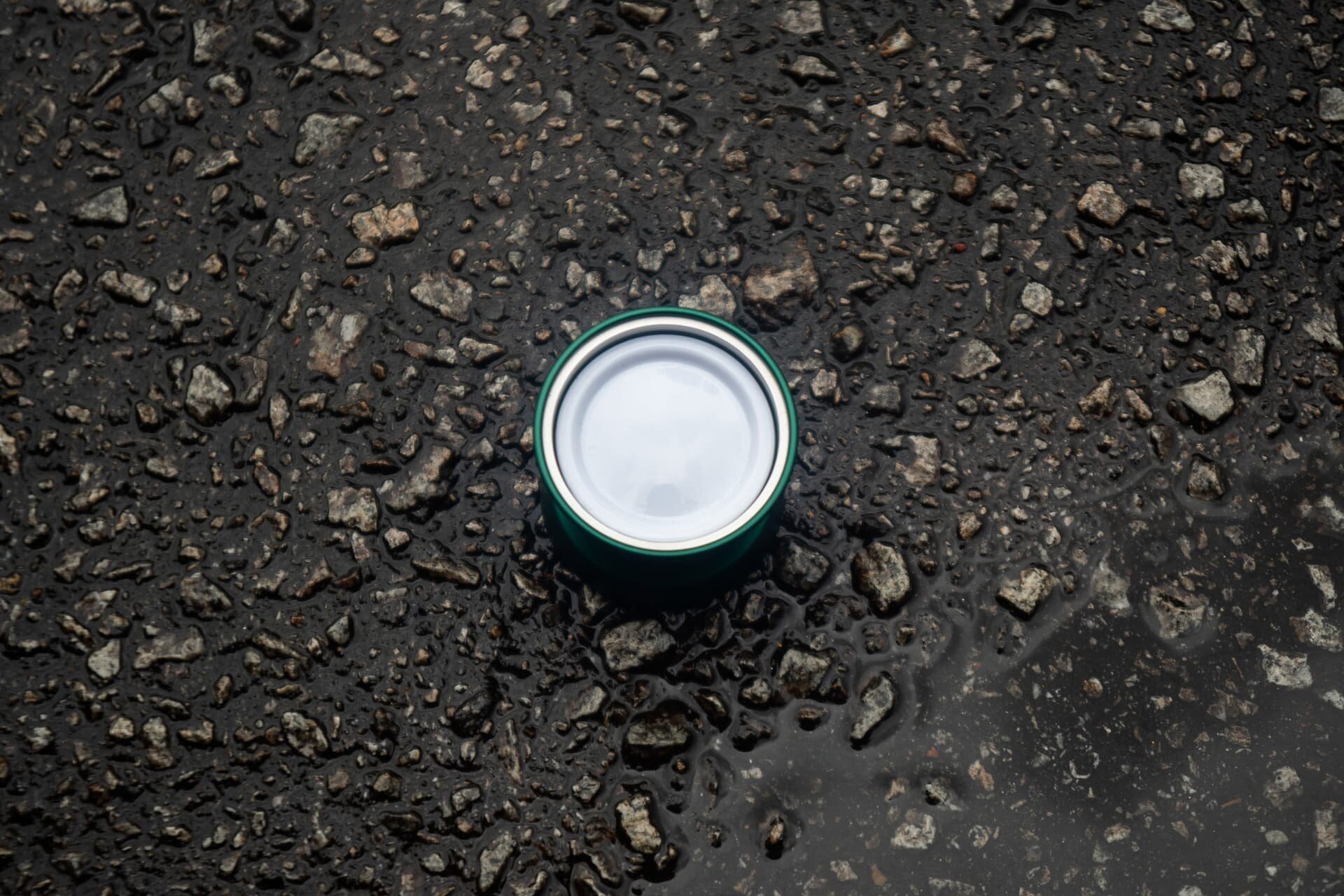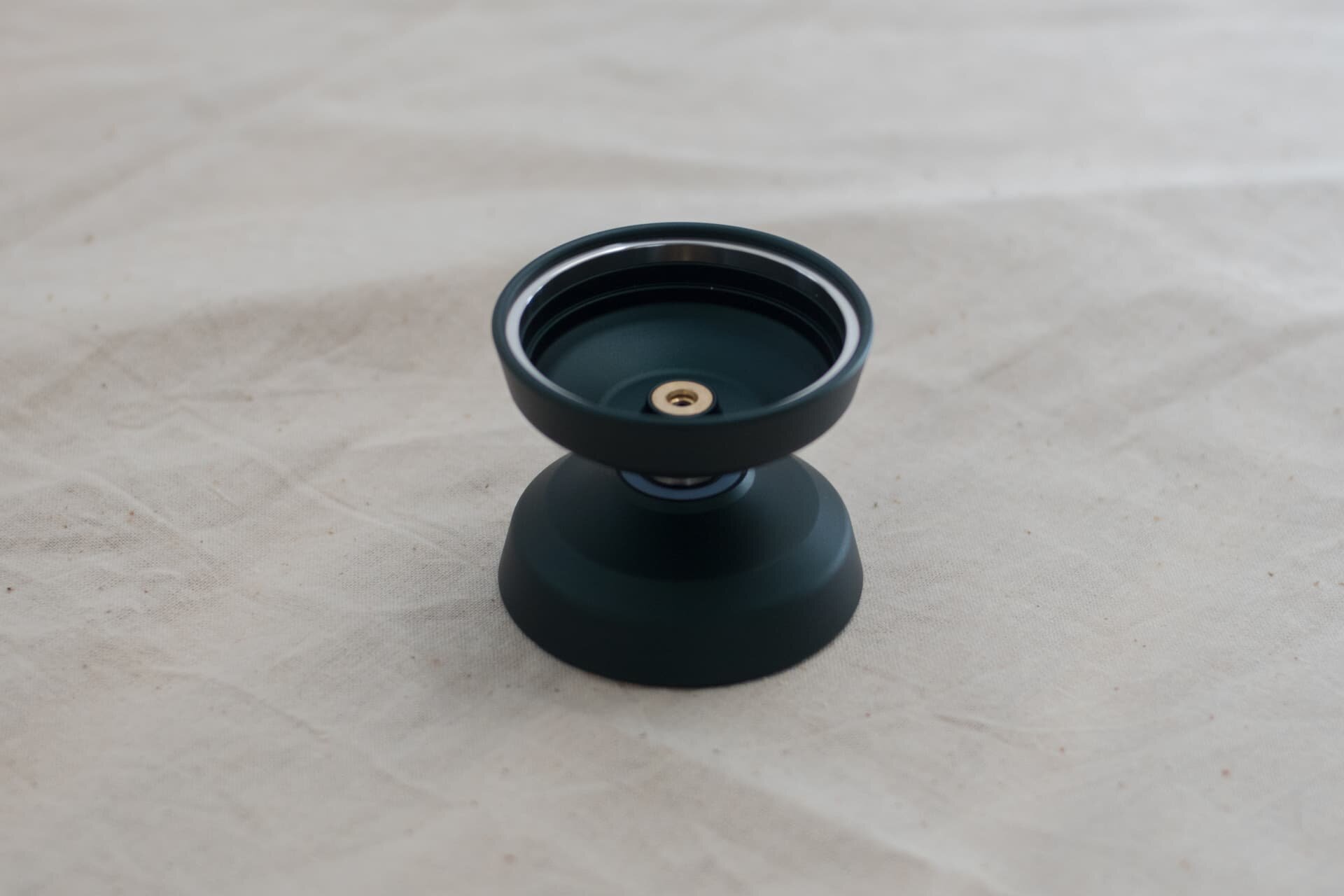Khuno
We released the Cloudberry, our first model ever, exactly year ago in September 2020. The original concept for the Fruitbowl Line, which the Cloudberry kickstarted, was to us something of a design study in the organic genre and what play experiences they would yield based on dimensional tweaks.
For our sophomore year, we’ve been looking to take a little bit of a different direction. A Season II of sorts. We’re still going to be working on organic designs, whether released under the Fruitbowl Line or not, but Year Two will feature us pursuing a distinct design angle under our Weatherman Line.
As the debut design of this line, we’re very proud to introduce the Khuno.
SPECS
dia 57.0mm
wid 48.3mm
base weight with AL Ultra Lights 63.5g, (maximum stock weight of 71.7g)
material 7068 AL · SS
includes AL Ultra Light SEs, Brass Ultra Light SEs, and blank Duncan caps
This is the first non-organic we’ve released. W shapes have been a space we’ve been interested in a long time. Personally, I find them a bit more intriguing than the pure V-profiles that generally occupy the competitive, performance-oriented space. Part of this is due to my experience with incredibly made W-shape throws – some of the best instances of these throws, in my opinion, are made by the elder statesmen of the return top design game. Zach Gormley’s Arctic Circle line and Mark Mangarin’s Akita by CLYW, the Kuntosh by One Drop, and the Summit by the two companies top my private list. One Drop’s Sugar Glider is also a sleeper winner that I feel is confusingly underrated.
These Ws offer the performance edges of a more competitive profile, but retain the comfort and feel of rounder shapes.
This was our first prototype of the Khuno.
The base concept we began with was that of a customisable, competitive W-shaped return top. The foundation of this concept centers on the view that player preferences on competitive features are not so monolithic, and that variability – a feature usually reserved for more casual designs – is favourable even in the performance space.
Having sufficient power is a given, but there is less of a consensus when it comes to weight and feel. One might perceive the general narrative to favour the floatier and lighter of designs, but there is fair presence of those who prefer a heftier ride.
I got to know Thawhir Iqbal, Singapore’s and Asia’s 3A champion, when I was working on the Gravity project, and his feedback on my designs and early prototypes have been illuminating.
The first time we met, he opted for the heavier of the few Gravities I brought to the shoot, and at a later session commented he felt the Khuno prototype (then outfitted with Aluminium Ultra Lights) was too light.
His preference is for throws in the 67g-69g range; he feels that the extra weight compensates for stage nerves. His experience has been that when a player is nervous, his jitters can make everything feel lighter, flimsier, harder to control.
Light and agile can be enjoyable in a casual setting, but the additional mass can be anchoring, grounding, when a player is competing on stage. He gestured towards the Turning Point Mustang ES as reference, his choice for competitions, which comes in at 68.7g.
The moonshot for us was to create a Side Effects-compatible bimetal, which would ideally combine high performance with the freedom to switch things up. The hope with the Khuno is that wherever your play preferences lie on that spectrum, its customisability gives you control to dictate your preferred feel on the string.
(Prototype I on left, Prototype II on right)
The initial prototype came back playing great, but had a few setbacks we had to address.
At its lightest setup, it was agile and had a nice floaty signature. At the same time, it lacked the aggressive power we felt necessary for a performance-focused concept. The curved ridge that bridges the inner wall and outer rims also made it slightly sharp on the catch.
For Prototype II, we added a touch of rim weight in the stainless steel rings, tweaked the mid weight in the aluminium body, filled out the curved ridge into a graduated slope, and rounded some edges. The new profile feels significantly better in the hand and has a nice, full presence on its spin.
One challenge of creating a Side Effects-compatible bimetal is in allowing for a meaningful range of weight while preserving sufficient mass in its stainless steel rims.
In other words, its lightest and heaviest configurations have to be actual playable weights. If the lightest configuration starts at 65g, it doesn’t leave much room in the upper ends of the weight spectrum for using other Side Effects or weights – it gets too heavy too quickly. Reducing too much overall mass to achieve a light frame (reduction is most efficient in the stainless steel rings, given its density) is not a solution either; to fulfil its concept, the lightest configuration of the Khuno still has to play like a bimetal.
This wasn’t easy for a throw with a 57mm * 48.3mm frame, but 7068 AL allows us to creative things with wall thickness and where we apportion weight. We ended up with a base weight of 58.8g for the gutless halves.
At its lightest, the Khuno comes in at 63.5g when fitted with Aluminium Ultra Lights. That mass is distributed over a relatively large and wide frame, and moves easy. It glides through string elegantly. This is the setup that will likely come stock.
We are also including Brass Ultra Lights to give users the option of adding more center-weight without having to purchase another set of SEs; this clocks a medium mass of 66.2g. The additional center mass gives you a bit more zip without slowing things down too much – a setup great for denser, more deliberate tech, I think.
The kicker is that the Khuno also accepts Freehand caps. The polycarbonate caps add roughly 5.5g – along with Aluminium Ultra Lights, the Khuno comes in at around 69g. This set up is an absolute beast in stability and power without being sluggish, and is reminiscent to me of the original YYF Severe. The white Duncan caps are an aesthetic I really appreciate – it calls back to early Freehand prototypes, which were fitted with the same blank white caps.
(Of course, the last permutation that is available stock is combines the Brass ULs with caps, which puts it at a slightly intimidating 71.7g. For those who need a bit more torque than the average player, this is available to you. Fair warning – it is slightly animalistic.)
These are configurations that are available out of box.
One technical difficulty to overcome in producing the Khuno was the possibility of vibe. Given that Side Effect axles are moving parts secured by a precise fit, SE throws can be more susceptible to vibe in comparison to tapped axles. The challenge is compounded by the addition of stainless steel rims, which are yet another independent component, secured by way of press fit, to the whole of a spinning body.
Given these considerations, the balance of mass and tolerances were areas we gave careful attention to. We are also using the famed Yoyorecreation NSK Platinum DS bearings in each Khuno. They are held to higher tolerances in manufacturing – the more precise fit with the bearing post allows for a smoother ride. If you’ve been around, you’ll know that the Khuno is fitted with top-of-line parts.
We hand-tune each Khuno for smooth play before we send them out, but as it is with any Side Effects throw, players should expect that some degree of tuning is part of the game.
The product of months of designing, prototyping, testing and iterating is Atmos’ first non-organic, customisable beast of a throw that caters to any of your preferences in performance play. We’re excited for you to meet this guy.
Thank you for reading! We’d love to know what you think.
·
As far as we know, this is also the first Side Effects bimetal to be made, but let us know if we missed a prior design.
·
Special thanks to Elvin of RSO for kind help rendered on this project. We’re happy to announce that the Khuno will come with Landing Pads, which we feel are some of the best in the field right now. Also, each Khuno will come with the same SE removal tool that we included with the Gravity.
·
september 2021
·


